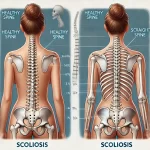The recovery period after a bone marrow transplant can be a challenging time for patients. The body’s immune system is weakened, which increases the risk of infections, and the body is less able to fight off diseases. Therefore, a healthy and nutritious diet is crucial to support the recovery process.
First, it is essential to maintain a balanced diet that includes all food groups, including carbohydrates, proteins, fats, and vitamins. Food is the body’s primary source of energy, and during the transplant recovery period, it is vital to ensure the patient receives enough calories to keep their energy levels up. Patients are often advised to consume small, frequent meals throughout the day to help maintain energy levels while reducing the risk of nausea and vomiting.
Since bone marrow transplants can affect the gastrointestinal (GI) tract, it is essential to adjust the diet to minimize discomfort and aid digestion. Patients should steer clear of spicy foods, fried foods, and foods that are very sweet or very sour as they can cause irritation in the stomach lining. They can also consume foods that are easy to digest, such as lean proteins, low-fat dairy, and fruits and vegetables.
Protein is essential for the production of healthy red blood cells and white blood cells. Therefore, it is crucial that patients consume an adequate amount of protein to support recovery. Protein-rich foods include eggs, lean meats, poultry, fish, tofu, and legumes.
During the recovery period, patients need to stay hydrated to help flush out toxins from the body. Staying hydrated can also help reduce chemotherapy side effects, such as nausea and vomiting. Hence, patients need to consume enough water and fluids while avoiding sugary and caffeinated drinks.
Here are some nutritional recommendations for patients during the different phases of bone marrow transplant recovery:
Before the transplant, patients should maintain a balanced and healthy diet rich in protein, fiber, and low in fat. It is also recommended to increase consumption of dark leafy greens, vitamin C-rich fruits and vegetables, and probiotics to strengthen the immune system. These foods can help in reducing inflammation and keeping the gut healthy.
The neutropenic phase is when the body’s immune system is at its weakest. The patients need to prioritize food safety and avoid raw or undercooked foods, such as eggs, meat, and vegetables. In this phase, patients may also need to take supplements or Multivitamins, such as iron, zinc, magnesium, and vitamin B and D to compensate for the nutrient gaps due to low intake or malabsorption.
During the post-transplant phase, patients need to eat a well-balanced diet that is low in fat, high in protein and fibrous food. It is typically recommended to eat smaller meals throughout the day to avoid indigestion or discomfort in the gut. Patients often face digestive problems, such as diarrhea or constipation, due to the effects of the chemotherapy on the gastrointestinal tract. In such cases, it is advisable to consult a nutritionist or a doctor for proper guidance.
It is also essential for patients to avoid immune-suppressing foods like grapefruit, pomegranate, licorice, and green tea, as these foods may interact with the medication and impact the body’s ability to produce new blood cells.
In conclusion, the road to recovery after a bone marrow transplant is a long one. It takes patience, perseverance, and a well-balanced diet to regain your strength and overall health. Patients must consume nutrient-dense food sources and stay hydrated to support the body’s immune system and minimize side-effects. While some foods may need to be avoided during the recovery period, there are many options available that can fulfill the nutritional requirements. A well-balanced diet coupled with regular exercise and rest can help provide the strength and energy required to achieve faster and better post-transplant recovery.
